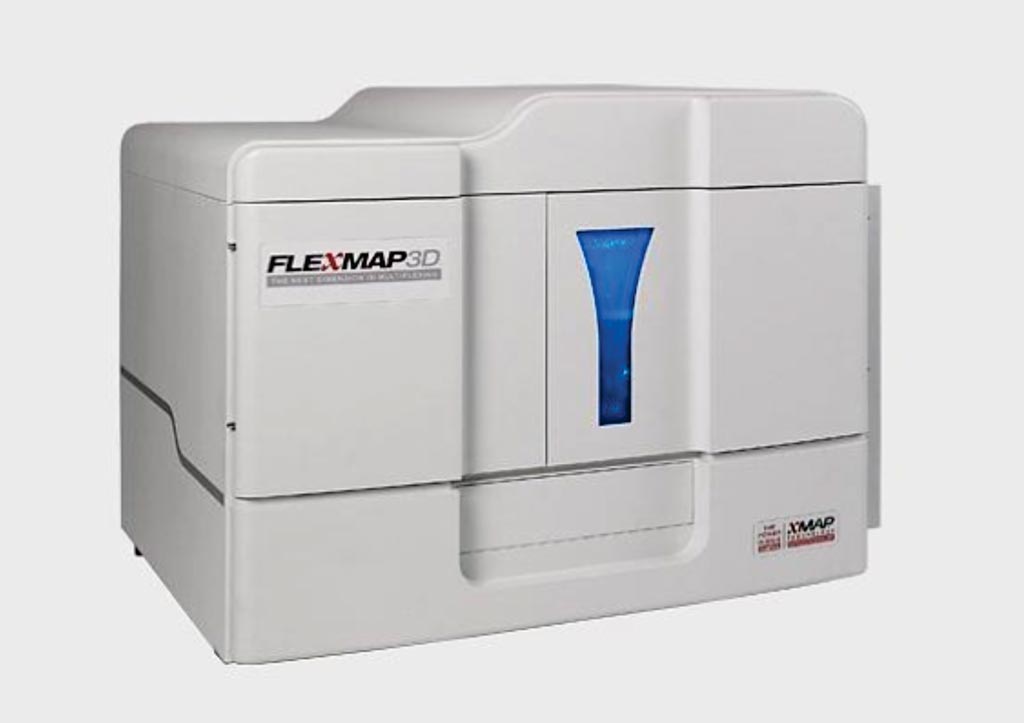Renal Transplant Rejection Assessed by HLA Antigen Bead Assay
By LabMedica International staff writers
Posted on 21 May 2019
Acute cellular rejection (ACR) is associated with complications after kidney transplantation, such as graft dysfunction and graft loss. Early risk assessment is therefore critical for the improvement of transplantation outcomes.Posted on 21 May 2019
The most common approach for pre-transplant risk assessment relies on the characterization of HLA antibodies in recipient serum samples by solid phase single HLA antigen bead (SAB) assay. The assay facilitates detection and identification of anti-HLA antibody specificities and provides a method for monitoring the development of donor-specific antibodies (DSA).

Image: The FLEXMAP3D Analyzer is an advanced and versatile multiplexing platform (Photo courtesy of Luminex).
Scientists at the Humboldt University Berlin (Berlin, Germany) and their colleagues enrolled in a randomized, multicenter diagnostic trial of 615 adult kidney transplant recipients. All patients who experienced ACR (borderline or Banff class 1 or higher) in the first year were assigned to the 77 in the ACR group. The control group included all 80 patients who neither experienced a rejection episode nor other serious adverse events.
Screening for HLA class 1 and class 2 antibodies was performed using a MAB assay, LABScreen Mixed Kit. All sera that tested positive and a random subset of negative sera were subject to single antigen bead (SAB) assays to identify antibody specificities using One Lambda’s LABScreen Single Antigen HLA Class I kit and/or LABScreen Single Antigen HLA Class II kit. Data acquisition was performed using a FLEXMAP3D Analyzer in combination with xPONENT software version 4.1.
The data set included SAB reactivity profiles of 52 low-risk graft recipients (negative complement dependent cytotoxicity crossmatch, panel-reactive antibody test (PRA) < 30%) who showed detectable pre-transplant anti-HLA 1 antibodies. To assess whether the reactivity profiles provide a means for ACR risk assessment, the team established a novel approach, which differs from standard approaches in two aspects: the use of quantitative continuous data and the use of a multiparameter classification method. Remarkably, it achieved significant prediction of the 38 graft recipients who experienced ACR with a balanced accuracy of 82.7% (sensitivity = 76.5%, specificity = 88.9%).
The authors concluded that the resultant classifier achieved one of the highest prediction accuracies in the literature for pre-transplant risk assessment of ACR. Importantly, it can facilitate risk assessment in non-sensitized patients who lack donor-specific antibodies. As the classifier is based on continuous data and includes weak signals, their results emphasize that not only strong but also weak binding interactions of antibodies and HLA 1 antigens contain predictive information. The study was published on April 27, 2019, in the journal BMC Immunology.
Related Links:
Humboldt University Berlin













